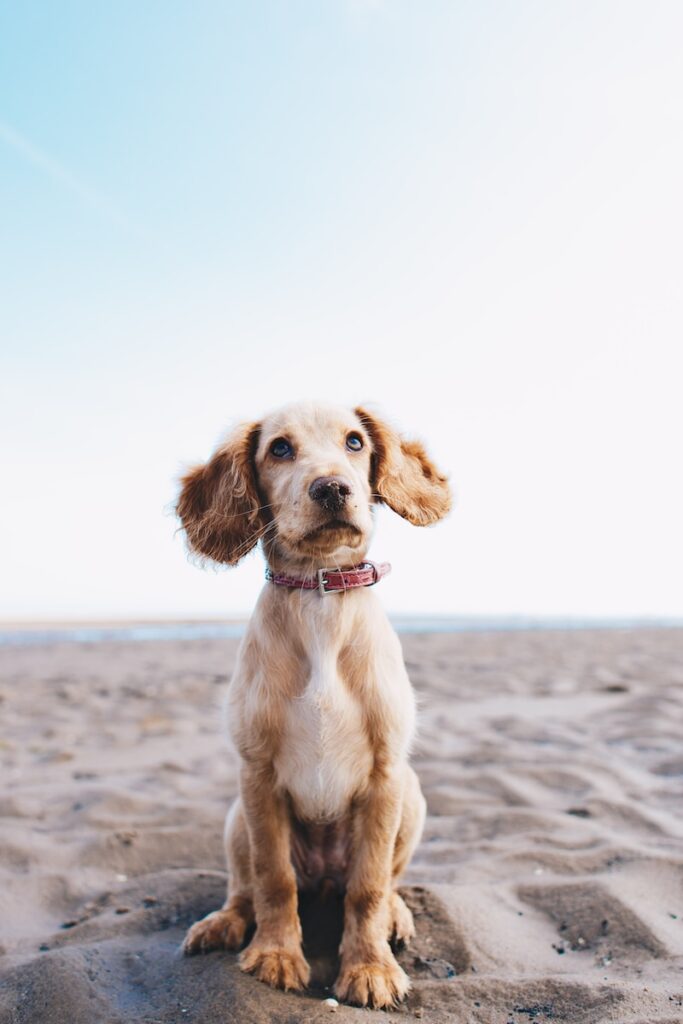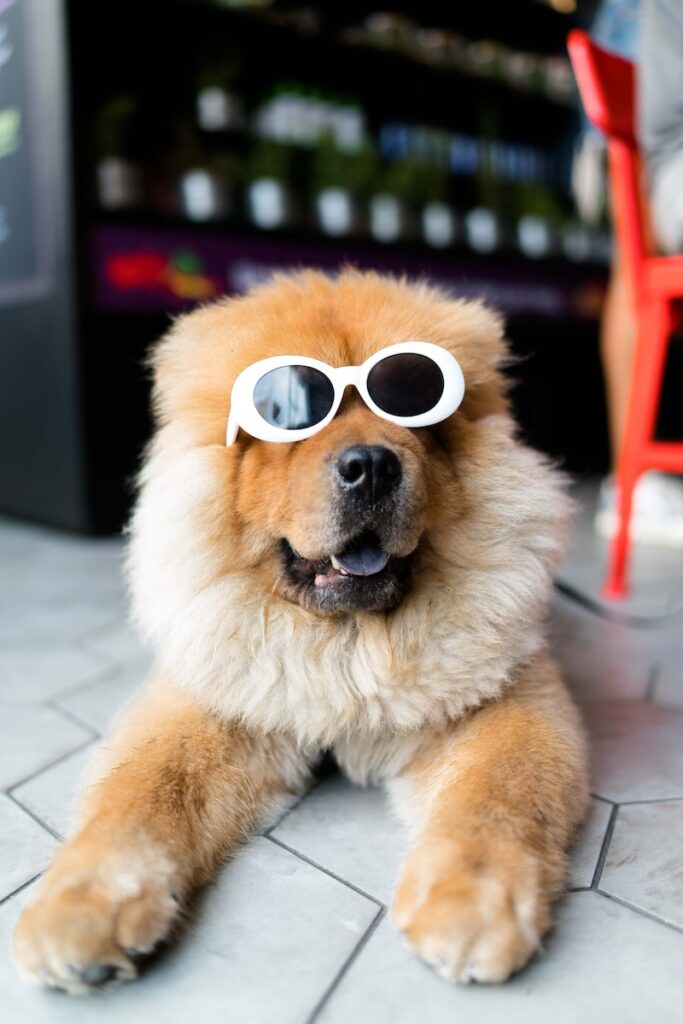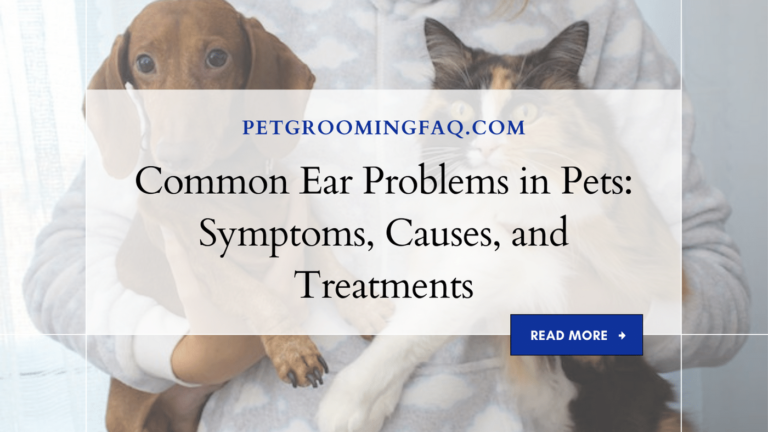The Importance of Regular Ear and Eye Care for Your Pet's Health
Our furry companions bring so much joy and love to our lives, it’s only natural that we want to give them the best care possible. While many pet parents prioritize keeping their pets’ fur clean and nails trimmed, there are other crucial areas of care that often go overlooked: the eyes and ears.
Regular ear and eye care are essential components of overall pet health, but unfortunately, they’re frequently neglected. In this blog post, we’ll dive into why these critical areas deserve more attention and how you can provide your pet with the proper care to keep them healthy for years to come!
What is Ear and Eye Care?
When it comes to your pet’s health, ear and eye care are key. These organs are very important in the overall process of absorbing sound and seeing clearly. When they’re functioning properly, ear and eye care can help prevent potential health problems down the line.
Here are some things to keep in mind when it comes to ear and eye care for your pet:
- Keep your pet’s ears clean – Scrub them regularly with a gentle soap solution or a dog-earing liquid such as Otterbox Dog Ear Cleaner ($10, otterbox.com). Be sure to rinse well and dry off completely before putting your pet back in their enclosure!
- Check up on your pet’s eyes – Sometimes we don’t notice our pets’ eyes bothering them until something goes wrong. Make sure you check their eyes regularly for discharge, redness or pain. If you see anything that doesn’t look right, take your pet to the vet immediately!
In addition to regular ear and eye care, there are other things you can do to help improve your pet’s health overall:
- Give them plenty of fresh water – Drink plenty of fresh water to help keep your pet’s fluids balanced.
- Feed them a healthy diet – Diets high in sugar and unhealthy fats can increase your pet’s risk for developing health problems, including ear and eye problems. Make sure to choose a diet that includes plenty of protein and healthy fats.
- Exercise your pet – Exercise is good for your pet’s overall health, but it can also help prevent ear and eye problems. Playing fetch, walking or running outside are all great ways to keep your pet active!
Ear Care

The health of your pet’s ears and eyes is essential for their overall well-being. Not only will proper ear care help to prevent ear infections, but regular eye exams can also identify early signs of eye disease and warning signs of more serious problems. If you are concerned about your pet’s ears or eyes health, take a look at some common tips for healthy ears and eyes.
Take a Look at Some Tips for Healthy Ears:
Keeping your pet’s ears clean is essential for their health. Frequent rinsing with water can remove any debris that may be causing an infection. If your pet has trouble tolerating water in their ears, try using a gentle cleanser or rubbing alcohol. Be sure to keep the area clean and dry after cleansing to prevent any further infection.
Avoid dirty objects that could become lodged in your pet’s ears. This includes feathers, branches, leaves and other large objects. If you do find something lodged in one of your dog or cat’s ears, do not force it out – let a veterinarian remove it safely.
Be sure to feed your pet fresh, nutritious food every day – it will help keep their ears clean and healthy! Many pets also benefit from daily supplementation with omega-3 fatty acids. Veterinarians often recommend soft chews or vitamin supplements as additional ways to keep pets’ ears clean and healthy.
Eye Care

There are a number of things you can do to help make sure your pet’s eyes and ears are staying healthy. One key area is regular eye and ear care. While this might seem like a small thing, it’s important to remember that your pet’s eyes and ears are highly sensitive organs. If they’re not taken care of, problems can develop very quickly.
When it comes to your pet’s eyes, making sure they’re clean is critical. You can give them a bath once a week but you should also make sure to remove any debris or dirt from around their eyes. You can also give them a special eye wash just for pets that will help remove any oils or debris that could be causing problems.
As for their ears, you should always check them for signs of infection or discharge. If you notice anything unusual, take your pet in for an appointment with the doctor as soon as possible. Ear infections can be quite serious and if left untreated can lead to other health problems down the line.
Why is Eye Care Important for Pets?
According to the American Animal Hospital Association, “eyelidbleeding can be a symptom of many serious health problems in pets, including injury, infection, and following surgery. Additionally, many common eye care products are harmful if applied directly to the eyes.”
To help keep your pet’s eyes healthy and clear, it is important to provide them with regular eye and ear care. This includes checking for abnormalities such as keratitis or bleeding, regularly cleaning their face and ears, using a humidifier for dry eyes, providing fresh water and good food habits, and providing appropriate veterinary care should any problems arise.
Types of Eye Problems in Pets
There are a variety of eye problems that can befall pets, from simple irritations and Conjunctivitis (pink eye) to more serious conditions such as Pneumonia. Here is a list of the most common types of pet eye problems and their causes:
Astigmatism: Astigmatism is an irregularity in the curvature of your pet’s cornea (the front surface of your pet’s eyeball). This can cause blurry vision or light sensitivity. It can be caused by genetics, injury or infection. Treatment may include eyeglasses, laser treatment or refractive surgery.
Conjunctivitis: Conjunctivitis is inflammation and swelling of the conjunctiva (the membrane that covers the eyes), most commonly caused by bacteria or viruses. Symptoms include redness, weeping and discharge. Treatment includes antibiotics ointment and pain relief.
P Surgeries
cataracts
Rhinitis: Rhinitis is an infection or congestion of the nasal passages, which can lead to difficulty breathing. Symptoms include sneezing, running nose, sinus pressure and coughing. Treatment usually involves antibiotics and over-the-counter medications.
anterior uveitis
Myopia: Myopia is shortsightedness caused by structural abnormalities in the lens of your pet’s eye. It is usually inherited in dogs and cats but may also occur due to exposure to bright sunlight ororrect lighting at home or during puppyhood.
How to Properly Clean an Eye Chamber in a Pet
If you’re a pet owner, it’s important that you keep your pet’s eyes and ears clean. Regular ear and eye care can help to prevent infections, avoid future surgery, and improve your pet’s overall health. Here are tips on how to properly clean an eye chamber in a pet:
-To clean an animal’s eyes, first wash their face with warm water and soap. Make sure to get into the corners of their eyes and around their eyelashes.
-Then use a gentle cleanser or eyewash to remove any residue or dirt. Be sure to rinse well.
-Cover the eyes with a sterile bandage or eye shield while they are still wet, if desired. Allow them to dry completely before replacing the bandage or shield.
Prepping Your Pet for an Eye Exam
To help you keep your pet healthy and happy, here are a few tips for properly prepping them for an eye exam:
1] Make an appointment with your veterinarian.
2] Clean the pet’s eyes and ears thoroughly with warm water and a mild soap solution. Be sure to get into the ears and clean all of the wax buildup.
3] Fill out a medical history questionnaire for your veterinarian, noting any abnormalities or signs of disease that may be related to the eyes or ears. This information will help guide the examination and treatment plan for your pet.
4] Bring along copies of recent photos of your pet’s eyes and ears, as well as any meds, food, toys, or other objects that may have been in close proximity when the animal had an illness or injury affecting its eyes or ears (such as during fights). These items can provide valuable clues about what may have caused the problem.
5] If possible, have someone else take your pet to the vet office so you can take care of other business while they undergo their exam(s). This will save you time in having to wait in a long queue after returning from the doctor’s office with your pet.
Creating a Daily Schedule for Pet’s Ear and Eye Care
Ear and Eye Care for Your Pet’s Health
- If you have a pet, there is a good chance that you take their health seriously. That’s why it is important to include regular ear and eye care in your routine. If done properly, ear and eye care can help to keep your pet healthy and looking appealing. Here are some tips for creating a daily schedule for pet’s ear and eye care:
- Check your pet’s ears regularly – Many times we don’t realize that our pets are having problems until it is too late. By checking your pet’s ears regularly, you can be sure to catch any issues early on. Some of the signs that your pet may be having an ear problem include discharge, redness, or an inability to hear clearly.
- Keep an eye on your pet’s eyes – Just like their ears, eyes can be another indicator of trouble. Problems with the eyes can include dryness, infection, or even vision loss. It is important to monitor your pet’s eyes regularly so that any problems can be addressed as soon as possible.Some of the signs that your dog may have an eye issue include increased blinking, blinking excessively, difficulty opening or closing the eyelids fully, or changes in pupil size or coloration.
Conclusion
One of the most important things you can do for your pet’s health is to keep them regularly scheduled for check-ups and exams by a veterinarian. This includes regular ear and eye care, as many diseases can be easily prevented or treated if caught early on! By keeping your pet healthy, you are also helping protect the community at large, since pets tend to bring positive filth into homes without proper cleaning habits. Check out our selection of veterinary supplies today and get your pet ready for their next check-up appointment!








3 Comments